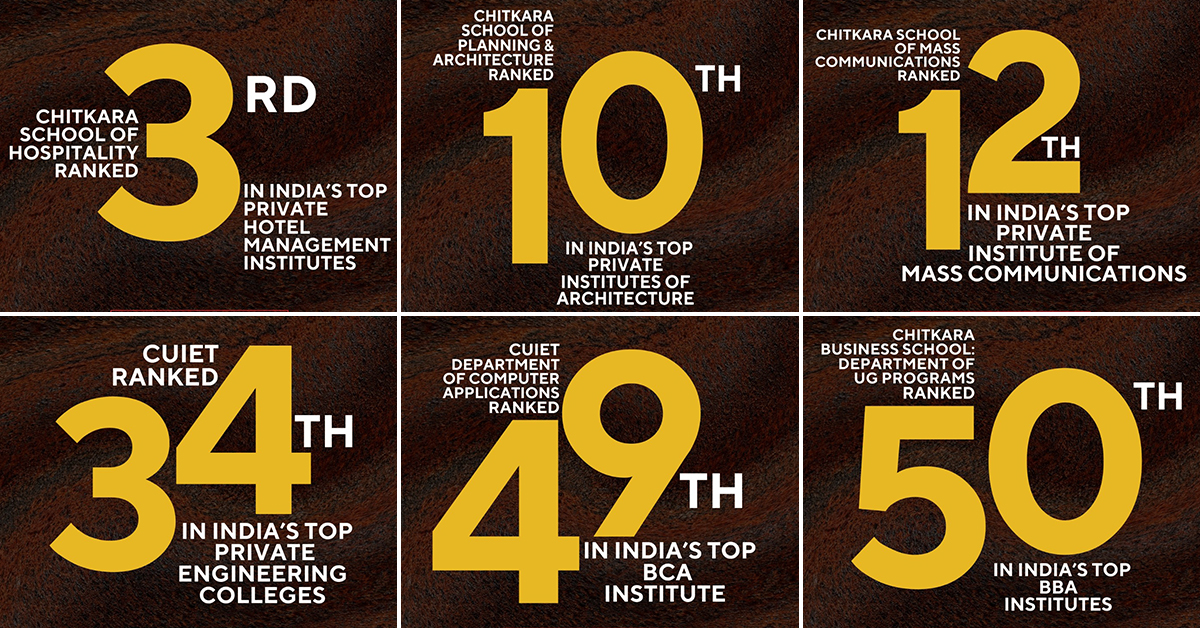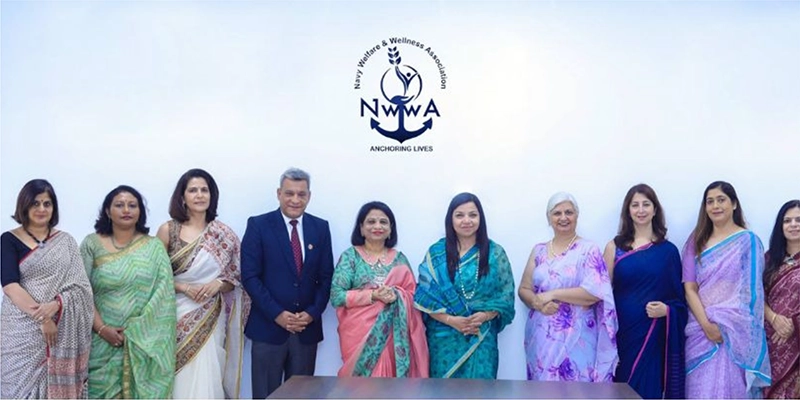Chitkara University tops charts in Outlook-ICARE 2021: India’s Best Colleges Rankings
Chitkara School of Hospitality has been ranked 3rd in ‘India’s Top 25 Private Hotel Management Institutes’, Chitkara School of Planning & Architecture has been ranked 10th in ‘India’s Top 25 Private Institutes of Architecture’, Chitkara School of Mass Communications has been ranked 12th in ‘India’s Top 30 Private Institute of Mass Communications’, Chitkara University Institute of Engineering and Technology has been ranked 49th in ‘India’s Top 110 BCA Institutes’, Chitkara University Institute of Engineering and Technology has been ranked 34th in ‘India’s Top 100 Private Engineering Colleges’, Chitkara Business School has been ranked 50th in ‘India’s Top 125 BBA Institutes’ and Chitkara School of Health Sciences has been ranked 59th in ‘India’s Top 100 Institute of Sciences’ ( for Nursing Programs ).
The Outlook-ICARE India MBA Rankings survey is a 100 percent outcome-based evaluation designed with deep industry insights and supported by solid research. The private institutes in India that offer MBA and equivalent management degrees are evaluated on globally relevant and employability-oriented characteristics in this survey. The rankings are analyzed and produced by the Indian Centre for Academic Rankings and Excellence (ICARE), a trusted and government-approved academic audit and ratings agency.
The Outlook ranking is based on several parameters such as Faculty-Student Ratio (FSR), Research Productivity and Quality, Faculty with PhD, Faculty Experience (Teaching/Corporate), Gender Diversity, Regional Diversity, Median Salary and Employability. Outlook uses data sourced from NIRF, AISHE, UGD, AICTE, NAAC, mandatory disclosure of institutions and institute websites to produce the all India rankings, annually.
Higher education systems are rapidly expanding around the world to meet the growing need and demand for education. In a globalised world, more access to higher education improves individual opportunity as well as country economic development and competitiveness. Quality and accountability have become increasingly important to governments and educators around the world in this changing environment. Rankings, ratings, and national evaluation and accrediting systems have substantial implications in many developing nations, particularly on higher educational institution governance and internal management, as well as connections between institutions and governments, and between institutions and its stakeholders.















